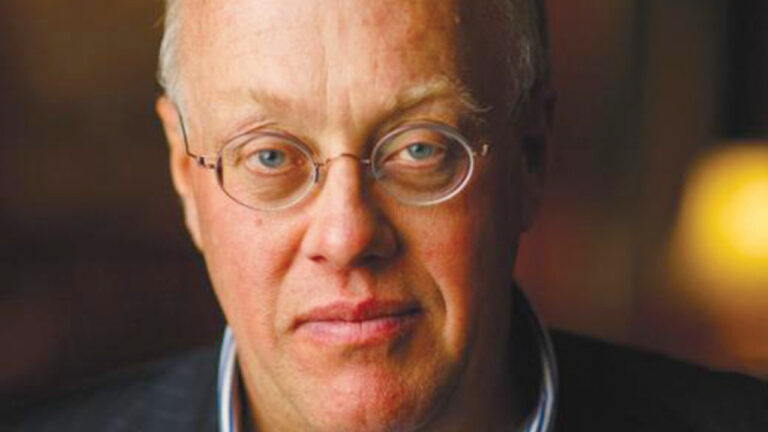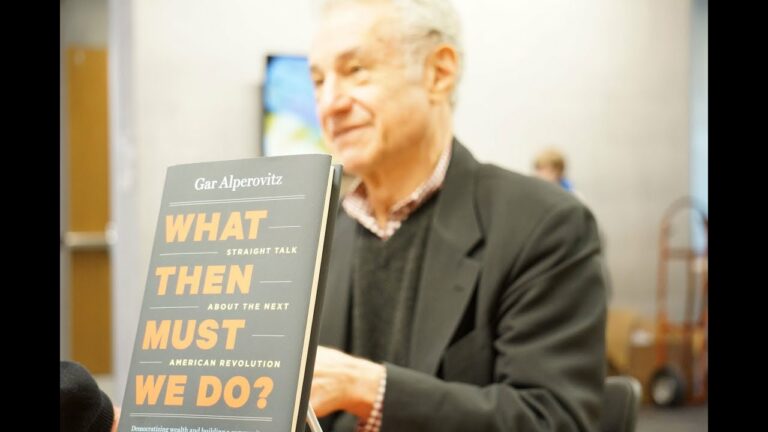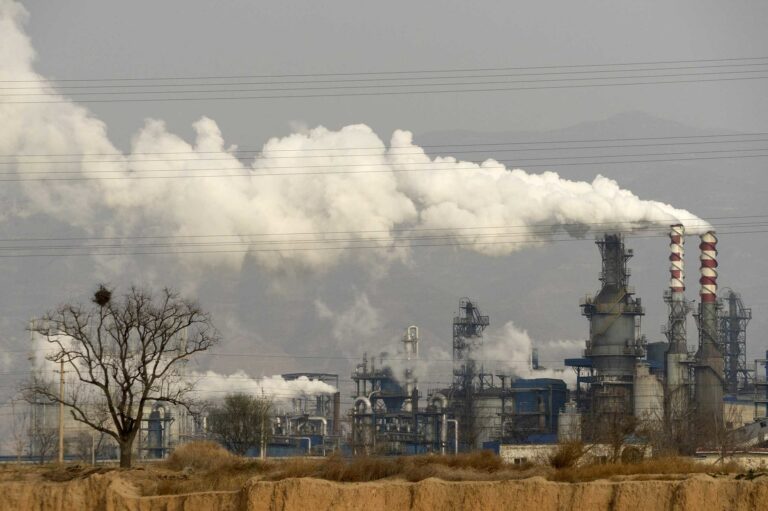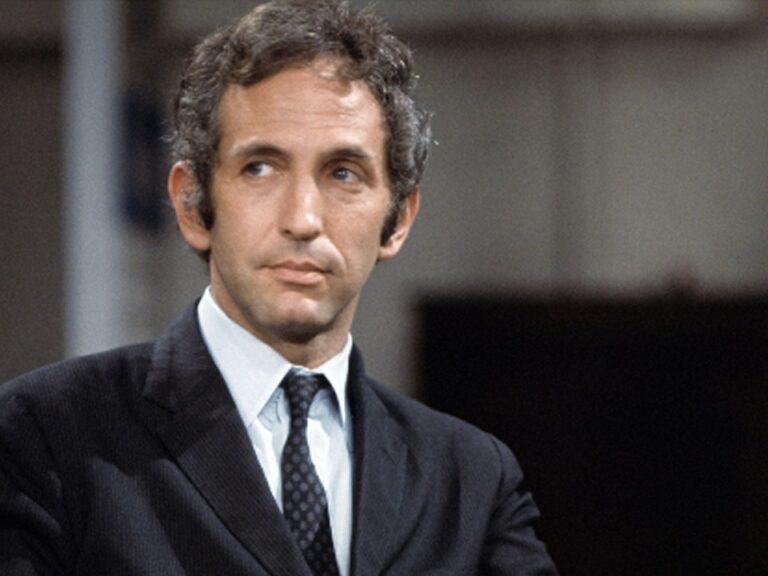Mr. Ratner tells Paul Jay that in the ’70s, the thrust for a more radical movement in New York was led by the fight for Puerto Rican independence. This is an episode of Reality Asserts Itself, produced March 11, 2014 with Paul Jay.
STORY TRANSCRIPT
PAUL JAY, SENIOR EDITOR, TRNN: Welcome back to The Real News Network. I’m Paul Jay in Baltimore, and we’re continuing our series of Reality Asserts Itself interviews with lawyer–I should say, radical human rights lawyer Michael Ratner, who now joins us in the studio.
Thanks for joining us again, Michael.
MICHAEL RATNER, PRESIDENT EMERITUS, CENTER FOR CONSTITUTIONAL RIGHTS: Nice to be back with you, Paul.
JAY: And just another–one more time, Michael is president emeritus at the Center for Constitutional Rights in New York. He’s chair of the European Center for Constitutional and Human Rights in Berlin. He’s also a member of the board of The Real News Network. And all kinds of other stuff.
If there’s one important story that gets almost zero coverage today, it is the Puerto Rican independence movement, the whole Puerto Rican politics. Perhaps maybe in New York there’s more, but across the country and nationally there’s virtually no consciousness of Puerto Rico, period. Tell us more about your involvement.
RATNER: And that’s ebbed and flowed, of course. In the ’50s, when I was a kid, some Puerto Rican nationalists shot up the U.S. Congress. They didn’t kill anybody, but that was front page everywhere. So you got some consciousness then of Puerto Rican independence. Of course, Puerto Rico was made a colony in 1898. It was originally a Spanish colony. The U.S., claiming it was helping push Spain out, just decided to stay and occupy it as a territory of the United States. And so it has a history of incredible colonialism–and still continuing. And we can tell stories about everything from sterilization to finishing off the farming, you know, to having a military base on Vieques, an island off Puerto Rico, that did bombing runs. It’s just an incredibly exploited piece of land, exploited so badly that essentially Puerto Ricans were better off (at least in their view) economically by moving to the United States.
It became heightened again in the ’70s, I think, when I was a young lawyer–I think in part in New York because there were a million Puerto Ricans in New York, a million. They’re dispersed now, as, you know, it’s changed suburban more and all that. And there was a liberation movement that was very strong, varying from a very strong nationalist movement, which would have been the most radical movement, to a Puerto Rican Socialist Party movement, which was [incompr.] would fit in that whole spectrum, to then there being, you know, the statehooders on the far right of it.
But it really in some way–I didn’t come at it on my own. I came at it because it was such a huge issue in New York at the time and because I was representing the draft. I got there through the draft, by representing Puerto Ricans who weren’t going to serve in Vietnam and who said, we’re independent. And I came up with 30 different legal reasons why they shouldn’t serve–you know, false treaties, occupation, they don’t vote, all these things. We lost almost every case, but in some ways we won them all: none of them, I think, wound up going to jail, because by the time I litigated them and got them sympathetic and–it’s a longer story.
But I then went from that to representing the Vieques protesters. They were doing–and that became a big issue later on, even, but in the ’70s, the U.S. military base on Vieques was doing regular bombing runs to drop bombs in the Atlantic, and it was a big fishing place for the fishermen off of Puerto Rico, but in Vieques in particular, and I wound up representing Vieques fishermen and the protesters.
JAY: Why are they dropping bombs in the Atlantic?
RATNER: They’re testing it. They’re testing ordinance and how they fly it and all this. The big military base was probably a third of the island. So that becomes a big issue. And I wound up doing a lot of the work in going to Puerto Rico a lot.
Then, of course, there were lots of bombings going on.
JAY: And this is all through the Center for Constitutional Rights.
RATNER: This is all through the Center. But it was a lot of work going on–not just at the Center, but the Center was really doing a lot of the legal work around Puerto Rico, and others on their own. A lot of the–there were grand juries that were–to try and destroy the Puerto Rican movement, that tried to call people in to be questioned, and all these kind of things. So it became–in the ’70s it was a very big issue.
JAY: And then there’s another place where the United States, in the name of getting Spain out, colonized, and that was Cuba. And you go there in ’73. How does that come about?
RATNER: Yeah. Yeah. You know, we always called–or maybe Fidel or one of–maybe the poet, José Martí, from Puerto Rico called–they used to call Puerto Rico and Cuba two wings of the same bird. Really, they’re sisters in a way and two wings of the same imperialist bird, I think, is what is meant. Cuba ostensibly got its independence, but it was dominated and controlled by the United States, and also a military base, which is still there, which represents my work over the years with Haitians and now Guantanamo. Guantanamo is Cuban. U.S. has a forever lease there, essentially.
And I went to Cuba in ’73 the first time. By that time–it was interesting. I forgot this, but I was already representing Venceremos Brigade. The Venceremos Brigade would send progressive Americans to Cuba to do work–sugarcane work or construction work–as a way of breaking the blockade of Cuba. And so my first trip was in ’73. Before then, for two years I’d probably been representing the Brigade. They probably weren’t that much–in existence that much longer, five years or something. And eventually I went on a brigade. That was in ’76. I did construction for six weeks. A fascinating time, obviously.
But my first trip was ’73, and, of course, many stories about it, but the main one that comes to me now about it–I mean, first of all, we thought it was going to be a workers socialist paradise, and in part it felt that way. I mean, this was–look it, Che was only killed in ’68, so he was killed, you know, five years before. So you still are with the comrades of Che. You go to Cuba in ’73, the Vietnam War is still going on. You go into, like, the bar in Havana Libre, and it’s filled with Black Panthers and Vietnamese, revolutionaries from Central America. It was a heady, I mean, incredible feeling. And, of course, you went out to the schools, and the fact that all the school kids had to do work in the farms for six weeks, and, you know, then the rent is 5 percent of your income, you know, etc., there was at least a very positive feeling. I’m not saying there weren’t negative things, but certainly for young people like us coming out of, you know, the United States and out of what had been a revolutionary time, even for us, you know, it was a really heady atmosphere in 1973 in Cuba.
But I remember a conversation I had talking about the U.S. and imperialism, and it’s June 1973. I’m sitting down with the dean of the law school. And there was very little law in Cuba. They pretty much got rid of capitalist law. It was run by–there were popular tribunals in each community and all these kinds of things. But there was still a law school–not with a lot of people in it, but there was still a law school. And we’re sitting down discussing what’s happening in South America, and we’re being optimistic about it. Seventy-three, we have the–still Allende and the Socialists are still in power in Chile. We have the Tupamaros in Uruguay, who were a real force to be reckoned with, you have a liberal military government in Peru, and probably more that I’m not remembering right now. And we’re saying, where really I’m–were being–speaking of–socialism or progressivism is really on the ascendancy.
And what you saw within probably–certainly within Chile was by September 11 the overthrow of Allende. You eventually saw the jailing and torturing and murder of the Tupamoros and, I gather, the overthrow of the Peruvian–in some way, change in the Peruvian military government. So you saw the United States, almost with the back of its hand, just sweep across progressive movements in Central and South America (South America, in this case) and just wipe them out. And that’s a real lesson that was learned repeatedly by me and others, of course, when we go into the ’80s.
JAY: When you’re in Cuba and when you come back from Cuba, you must hear from sort of liberal friends of yours–or you might have, at any rate–that, you know, you’re defending the freedom of speech, the right to organize, the right to protest, civil rights. And then they would say, in Cuba people don’t have that, that Cuba’s supported by the Soviet Union, where they don’t have such rights. What was your own thinking in terms of, you know, your fight for civil rights in the United States and then what you found in Cuba?
RATNER: You know, part the kind of lawyers we’re trained to be and the way our constitution works in this country, it would put a very high premium on what we call civil rights–free speech, right to vote, all kinds of civil rights. We put almost no premium–in fact, zero–on what I call fundamental economic rights–the right to health care, the right to shelter, the right to school, the right to work. Really almost none. And lawyers are trained in a certain kind, because that’s what our constitution reflects. It doesn’t guarantee those rights. It guarantees my right to sit here and talk to you.
JAY: Yeah. You can pursue happiness, but there’s no guarantee of a job.
RATNER: So my–and, actually, our legal system isn’t one that can get at what I call fundamental economic rights. And without going into an analysis of what, you know, democracy in Cuba and whether the right to vote means democracy or not, you know, particularly when it’s manipulated by huge amounts of money and all that, without even having to critique that, my fundamental belief is that I start from economic rights. I start from the guarantees to human beings that their children can be educated, they can get medical care, they can get shelter. And after that, I’m willing to start talking about what other rights they are–are necessitated by it. I’d like to see them go together. But what I can’t stand hearing is that, you know, a poor sugarcane worker in Cuba who can work before the revolution four months a year and the rest of the time is homeless because they don’t have to plant the crop and pick it for four months, that that person has a right to free speech, and that is somehow more important than that person’s economic security or his children’s. That’s my basic take on it.
JAY: I mean, I agree with that, but do you not think that there was some apologizing going on too much in that direction? What I mean by that is a kind of rationalization on some people on the left that. You saw it, certainly, in the Soviet Union. People would go and come back with that, oh, they have universal health care, they have this, and they have that–and to some extent with Cuba, although I don’t think the situation was ever as politically restricted or repressive, if you want, in Cuba as it was in the Soviet Union, but that these things do matter. They both matter is, I guess, what I’m saying. You know, what we have here is a superficial democracy if you don’t have economic rights.
RATNER: Right.
JAY: But if you’re going to actually be able to defend your economic rights in those kinds of countries, you have to be able to have a right to speak and organize and things.
RATNER: Right. I’m not saying they don’t matter. I think they should be coterminous and you should have them.
JAY: No, I’m not suggesting you’re saying–.
RATNER: No, but I’m saying when I come back here and your point is about how perhaps being people like me or leftists or others look at those in terms of would I come back and say, well, Cuba does great on this, but it does terrible on this, with the exception of some exceptions, I would say [incompr.] I would not make that talk here. And I don’t make it because the dominant–’cause what I’m doing by that is essentially reinforcing the dominant narrative in the United States.
And the question is: how you can–it’s a hard question you’re asking, because how do you have credibility on what you’re saying about Cuba without also embracing, yes, it’s not a perfect society? I think you obviously have to say that. But how do you do it in a way that it doesn’t enforce the dominant narrative in the United States, which is Cuba is just this repressive country that doesn’t have unions, that doesn’t have free speech, that doesn’t give people a share of their government? I mean, there’s ways I can take it on with, you know, popular power and all that, but in a substantive way. But I do think the real issue–and it’s a hard issue; I think it’s a hard issue of–the problem is the narrative in this country is so bad on these issues, whether it’s around Cuba or other countries, that you have to be very careful about how you do that, or else you become essentially–you know, you say, oh, yeah, they’re doing this good, but we have to get them on this. Now, as I say, there are some exceptions. Obviously, when Cuba went after, you know, homosexuals the way it did, that was a–I don’t think the left held its tongue on that particularly–maybe some, but–.
JAY: Well, there’s an interesting debate that’s still happening in Cuba, but a few years ago broke out, where one of the scholars there was saying that, you know, if you’re going to introduce co-ventures with Spain, you’re to start having some forms of private ownership, you’re going to have all this tourist dollars coming in, and you start to have a stratification between who gets access to these tourist dollars and who doesn’t, that if not before, at least then there needs to be the right to have independent unions, because now you have the state and the Party in kind of a conflict of interest situation.
RATNER: That kind of discussion that people have had a lot of, obviously, on that, that’s a big discussion, and it has been for years. When we go to Cuba, you know, my driver sometimes is a doctor who makes more money because I pay him in $25 a day–years ago this is, but he would make more money from that than he’d get in Cuban pesos. And, you know, there’s–so that discussion of the two-tiered system and what tourism means, that’s a very heavy discussion.
I mean, the problem is–obviously some of it, you know, is the nature of a revolutionary government that takes power through military means. Part of it is maybe that. But part of it is being a completely isolated country in the center of the Western Hemisphere. And when you see what the U.S. did, whether it’s in Chile or in–when we talked about it, or in the Tupamaros, or what it did in the ’80s in Nicaragua, was: we’re not going to have another Cuba in this hemisphere. So it’s a complex–.
JAY: And that was the message. That was the fear of the United States.
RATNER: It’s complex about what’s happened. And would you say it’s ideal the way the society had to be bent because of having to deal with a blockade and because of what it had to deal with? No, it’s obviously not ideal. And was it ideal that it had to embrace the Soviet Union? Not ideal. That I think was set internally. It was debated internally. Che would have been against it, Che Guevara. You know, that’s when it began, just at the edge of his life. So, you know, complicated discussions. I mean, there’s that in Cuba, and then there’s the discussion here. So it’s–.
JAY: And as your work continues through CCR, you get more involved in the American attempt to make sure there’s no more Cubas in Latin America.
RATNER: Yes, I do. I just want to go back to that last thing, which is I do think that for me, despite this discussion, to me the fundamental way I start by judging the society is the way I said: what is the economic well-being of its population?
JAY: Which is why we were talking off-camera ahead of time what I should call you, a civil rights lawyer, a human rights lawyer, and we settled on radical human rights lawyer, ’cause it needs that content that–.
RATNER: That’s not denigrating unions or free speech. Obviously, I want them both. But I don’t want a narrative that says–which is the narrative of the United States: if you have free speech or opportunity, quote, then you have–that’s all you have to give your society. I don’t accept that.
JAY: Okay. We’re going to continue our series of interviews with Michael Ratner on Reality Asserts Itself on The Real News Network.






